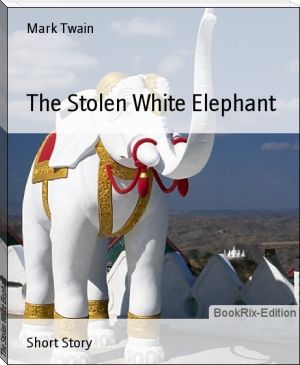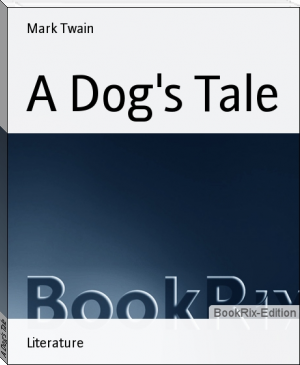author - "Mark Twain"
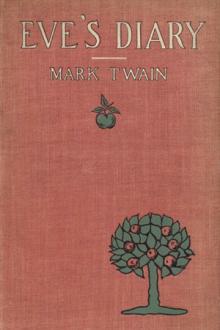
ch of delicate pink dust in the hole. Iput my finger in, to feel it, and said OUCH! and took it out again. Itwas a cruel pain. I put my finger in my mouth; and by standing first onone foot and then the other, and grunting, I presently eased my misery;then I was full of interest, and began to examine.I was curious to know what the pink dust was. Suddenly the name of itoccurred to me, though I had never heard of it before. It was FIRE! Iwas as certain of it as a person could be of anything in the

evil give to him with his own hands, and told him he could cure anybody with it and fetch witches whenever he wanted to just by saying something to it; but he never told what it was he said to it. Niggers would come from all around there and give Jim anything they had, just for a sight of that five-center piece; but they wouldn't touch it, because the devil had had his hands on it. Jim was most ruined for a servant, because he got stuck up on account of having seen the devil and been rode by
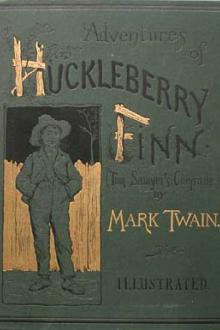
as stumped, and set still. I was most ready to cry; but all at once I thought of a way, and so I offered them Miss Watson--they could kill her. Everybody said:"Oh, she'll do. That's all right. Huck can come in." Then they all stuck a pin in their fingers to get blood to sign with, and I made my mark on the paper. "Now," says Ben Rogers, "what's the line of business of this Gang?" "Nothing only robbery and murder," Tom said. "But who are we going to
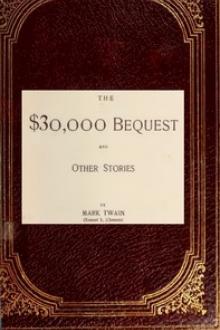
"I didn't mean so bad as that, Aleck; I didn't really mean immoral piety, I only meant--meant--well, conventional piety, you know; er--shop piety; the--the--why, YOU know what I mean. Aleck--the--well, where you put up that plated article and play it for solid, you know, without intending anything improper, but just out of trade habit, ancient policy, petrified custom, loyalty to--to--hang it, I can't find the right words, but YOU know what I mean, Aleck, and that there isn't any harm in

Description The Prince and the Pauper remains one of Twain’s more popular novels, having been adapted many times for the stage, screen, and elsewhere. When Tom Canty, a young pauper in London, meets Prince Edward, the two switch clothes and assume the other’s identity. Tom then learns the life of royalty, while the true prince discovers the troubles of commoners. As usual, Twain delivers both humor and social commentary in abundance. Although aimed at children, Pauper provides moral and social

Description When Orion Clemens is appointed Secretary of the Nevada Territory, his brother Samuel Clemens, better known by his pen name Mark Twain, joins him on his journey west. Together with their all-important six pounds of Unabridged Dictionary they make their way to Nevada in a six-horsed mail coach and are, of course, derailed by all sorts of problems. In Roughing It Twain combines the beautiful descriptions of the West’s idyllic landscape with his now-patented sense of humor. He joins

The Adventures of Huckleberry Finn was first printed in 1884, eight years after Mark Twain wrote The Adventures of Tom Sawyer. It starts up where the other story finished, and the two books together are believed to be the best that Mark Twain ever wrote. Huck travels down the Mississippi on a raft, facing many dangers on the way, and learning about life and what it means to be a friend. There are truths that Twain tries to get people to think about through this book. One is to make us laugh at

ch of delicate pink dust in the hole. Iput my finger in, to feel it, and said OUCH! and took it out again. Itwas a cruel pain. I put my finger in my mouth; and by standing first onone foot and then the other, and grunting, I presently eased my misery;then I was full of interest, and began to examine.I was curious to know what the pink dust was. Suddenly the name of itoccurred to me, though I had never heard of it before. It was FIRE! Iwas as certain of it as a person could be of anything in the

evil give to him with his own hands, and told him he could cure anybody with it and fetch witches whenever he wanted to just by saying something to it; but he never told what it was he said to it. Niggers would come from all around there and give Jim anything they had, just for a sight of that five-center piece; but they wouldn't touch it, because the devil had had his hands on it. Jim was most ruined for a servant, because he got stuck up on account of having seen the devil and been rode by

as stumped, and set still. I was most ready to cry; but all at once I thought of a way, and so I offered them Miss Watson--they could kill her. Everybody said:"Oh, she'll do. That's all right. Huck can come in." Then they all stuck a pin in their fingers to get blood to sign with, and I made my mark on the paper. "Now," says Ben Rogers, "what's the line of business of this Gang?" "Nothing only robbery and murder," Tom said. "But who are we going to

"I didn't mean so bad as that, Aleck; I didn't really mean immoral piety, I only meant--meant--well, conventional piety, you know; er--shop piety; the--the--why, YOU know what I mean. Aleck--the--well, where you put up that plated article and play it for solid, you know, without intending anything improper, but just out of trade habit, ancient policy, petrified custom, loyalty to--to--hang it, I can't find the right words, but YOU know what I mean, Aleck, and that there isn't any harm in

Description The Prince and the Pauper remains one of Twain’s more popular novels, having been adapted many times for the stage, screen, and elsewhere. When Tom Canty, a young pauper in London, meets Prince Edward, the two switch clothes and assume the other’s identity. Tom then learns the life of royalty, while the true prince discovers the troubles of commoners. As usual, Twain delivers both humor and social commentary in abundance. Although aimed at children, Pauper provides moral and social

Description When Orion Clemens is appointed Secretary of the Nevada Territory, his brother Samuel Clemens, better known by his pen name Mark Twain, joins him on his journey west. Together with their all-important six pounds of Unabridged Dictionary they make their way to Nevada in a six-horsed mail coach and are, of course, derailed by all sorts of problems. In Roughing It Twain combines the beautiful descriptions of the West’s idyllic landscape with his now-patented sense of humor. He joins

The Adventures of Huckleberry Finn was first printed in 1884, eight years after Mark Twain wrote The Adventures of Tom Sawyer. It starts up where the other story finished, and the two books together are believed to be the best that Mark Twain ever wrote. Huck travels down the Mississippi on a raft, facing many dangers on the way, and learning about life and what it means to be a friend. There are truths that Twain tries to get people to think about through this book. One is to make us laugh at

